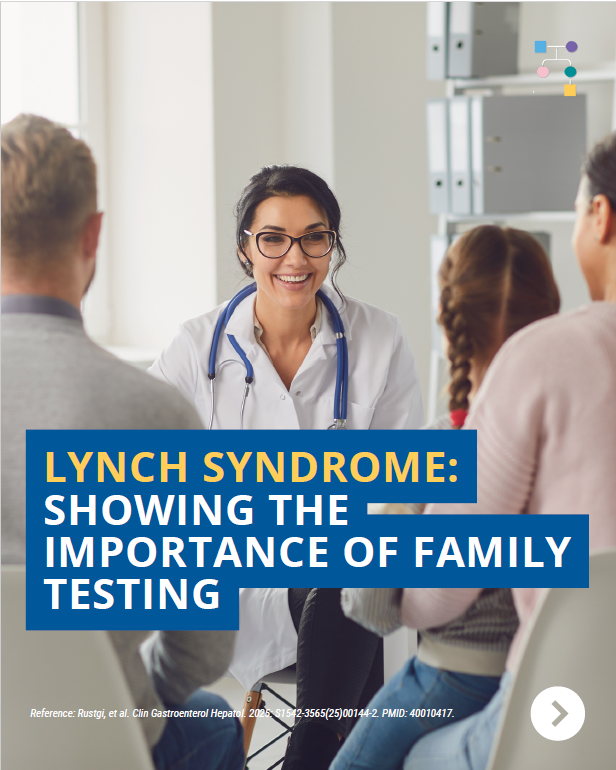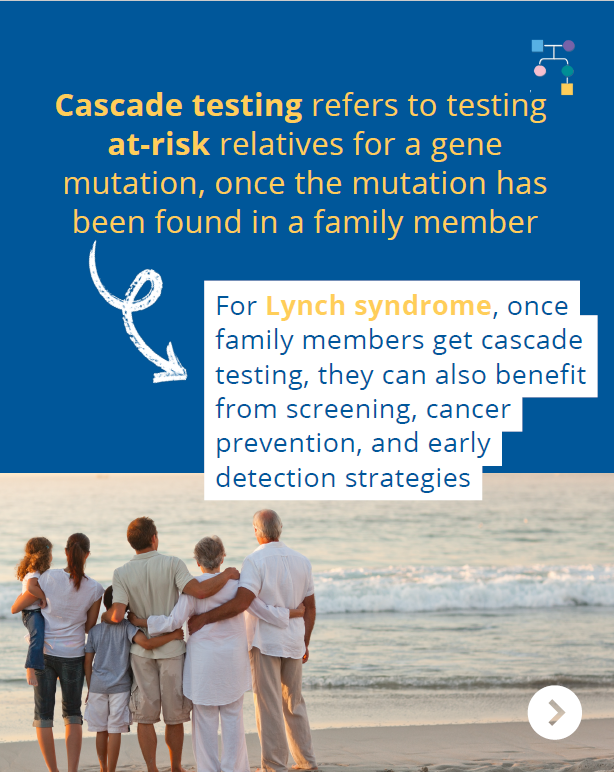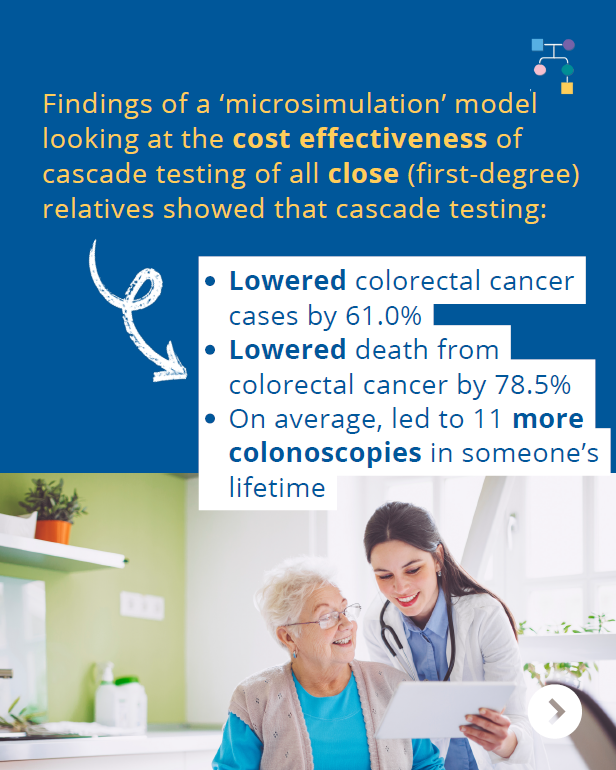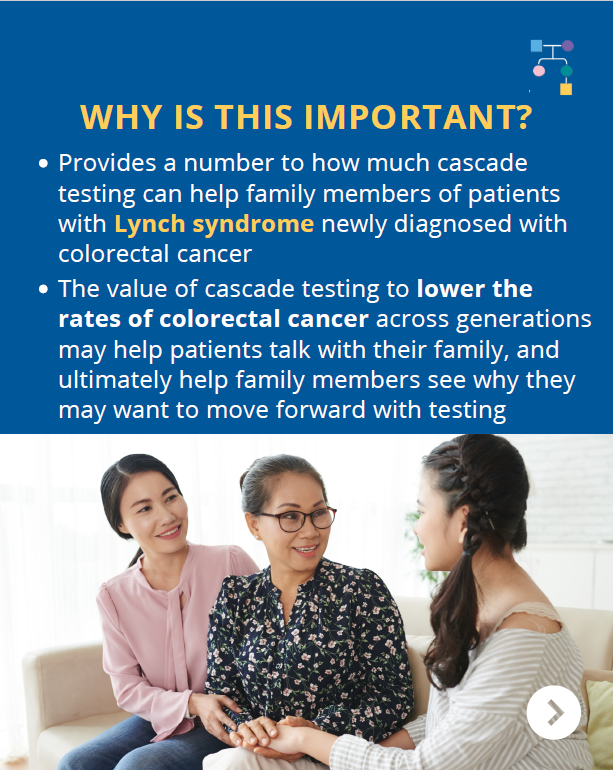




Cascade testing refers to testing “at-risk” family members for a gene mutation, once the mutation has been found in a family member. For Lynch syndrome, once family members get cascade testing, they can also benefit from screening, cancer prevention, and early detection strategies.
Findings of a microsimulation model looking at the cost effectiveness of cascade testing of all close (first-degree) relatives showed that cascade testing:
- Lowered colorectal cancer cases by 61.0%
- Lowered deaths from colorectal cancer by 78.5%
- On average, led to 11 more colonoscopies in someone’s lifetime
Why is this important?
- Provides a number to how much cascade testing can help family members of patients with Lynch syndrome newly diagnosed with colorectal cancer
- The value of cascade testing to lower the rates of colorectal cancer across generations may help patients talk with their family, and ultimately help family members see why they may want to move forward with genetic testing
Learn more at: https://pubmed.ncbi.nlm.nih.gov/40010417/
Reference: Rustgi, et al. Clin Gastroenterol Hepatol. 2025: S1542-3565(25)00144-2. PMID: 40010417.
